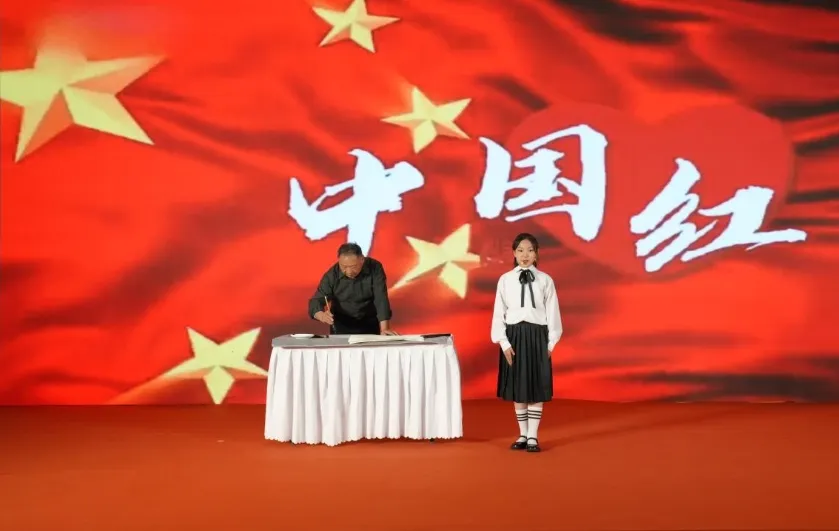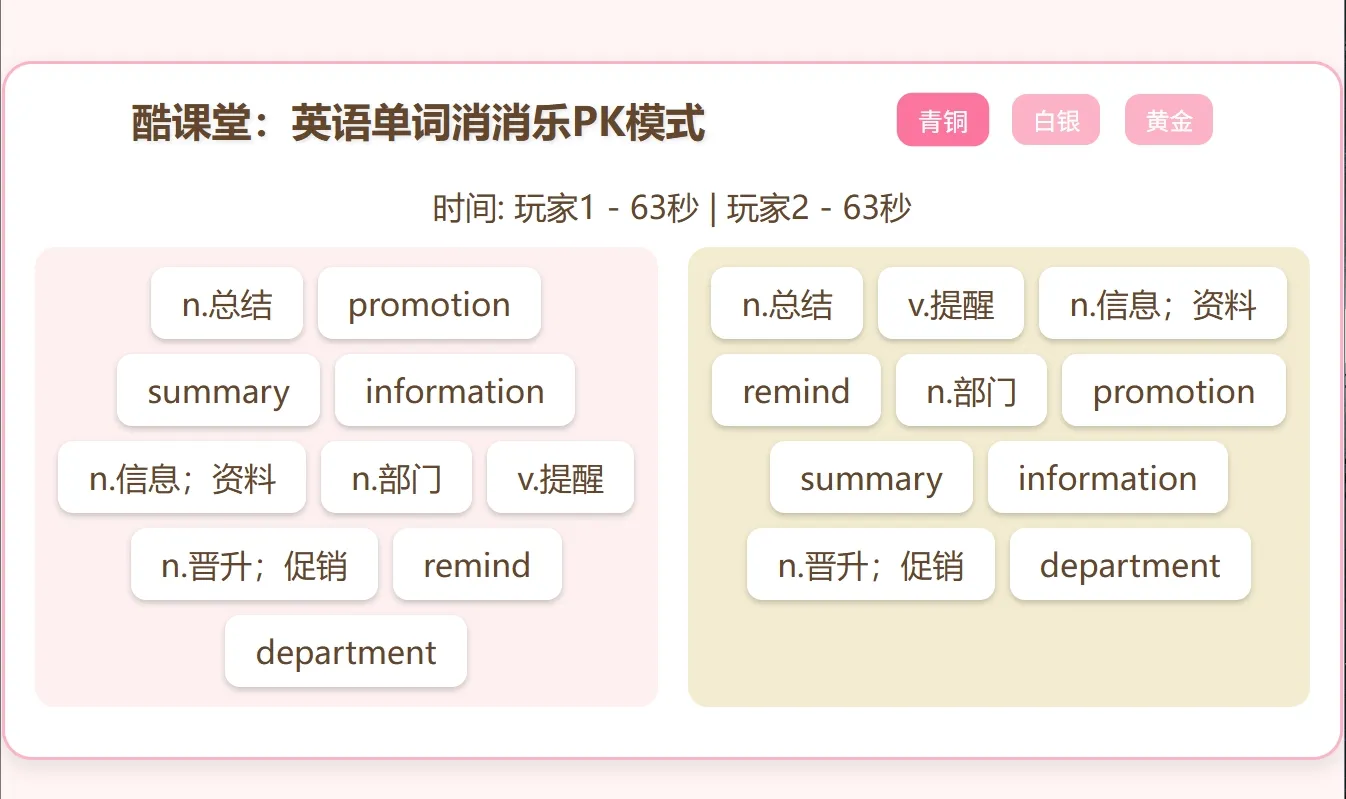|
Period
7
Teaching & learning
contents:
Using Language—Reading and Writing
Teaching & learning goals:
1. Get students to read the story, understand and get to know the
structure of a story.
2. Learn the new language points in the story.
3. Try to write an ending to the story using the hints.
Main points: Reading
and writing practice
Difficult Points: The
structure of a story, new language points and how to write an
ending to a story
Class type:
Reading and writing
Teaching & learning procedures:
Step 1 Revision
Task 1 Revise the communication items learned in the last
period.
Task 2 Ask few groups to
present or act their telephone dialogues to the
class.
Step 2 Reading
Task 1 Ask students to talk
about what they know about
the Double Seventh Day (or Chinese Valentine’s Day) and the story
between the Herd boy (Niulang) and waving girl
(Zhinu).
Task 2 Read the story as
quickly as possible to answer the following questions.
1.
Why was the TV story what Li Fang needed?
2. What was Li Fang afraid that
Hu Jin was doing?
3. How did Li Fang know the
manager wanted to shut the coffee shop?
4. Why do people want the
weather to be fine on Qiqiaojie?
Answers to the
questions:
1. The TV story was a sad story about lost love-- the same
situation as Li Fang.
2. He was afraid that she was with her friends laughing at
him.
3. The manager wiped the tables and then sat down and turned on the
TV.
4. People want the weather to be fine so they can meet the one they
love.
Task
2 Scan the text to fill in the blanks in the table to have a clear
idea of the two stories and get to know the structure of a
story.
1) A Sad Story of
Love
|
Introduction
|
Li Fang was
waiting alone at the coffee shop
with his roses and
chocolates,
but Hu Jin didn’t turn up.
He thought she would keep her
word.
Feeling like a fool, he would drown his
sadness in coffee.
|
|
Development
|
Li
Fang watched a TV program about “Qiqiaojie”.
Thinking Hu Jin played a trick on
him, he threw away the
gifts and set off for home.
|
|
Climax
(高潮)
/ Ending
|
As Li Fang passed the
tea shop
on the corner, he heard Hu Jin calling and waving at
him, “I’ve been waiting long. I have a gift for
you! Why are you so late?”
What would he
do? Would she forgive him?
|
2) The Story of the Herd Boy and Waving
Girl
|
Introduction
|
Zhinu, the weaving girl, the
most lovely of the daughters, visited the
earth and
met Niulang, the herd boy.
|
|
Development
|
They fell in
love,
married secretly and
were very happy.
|
|
Climax
(高潮)
|
The Goddess of Heaven got
so angry that
she forced Zhinu back to heaven.
Niulang tried to follow her but was stopped by
the
Milky Way.
Thus, the couple were separated.
|
|
Ending
|
The Goddess of Heaven allowed the couple to meet
once a
year on the seventh day of the seventh lunar
month when magpies make a bridge of
their wings.
|
Task 3 Learn the new language points in the story.
Some phrases and new
words:
1.
turn up 1)
来,
出席(某活动)
2)
把(收音机等)音量开大一些,
其反义短语是turn
down.
eg. I’m very
happy you turned up so early.
When
the meeting began, he turned up.
Turn up the radio a little. I can scarcely hear the
program.
Don’t turn up the speaker. It’s too noisy.
turn-phrases:
turn down 拒绝;
把(收音机等)音量调小
turn off
关掉
turn on
打开
turn over 打翻, 翻身, 折腾, 翻阅
turn out
结果是......
turn into 变成;
译成
turn to sb. for help
向某人求助
2. keep one’s word/ promise
守信用
break one’s word
失信
eg. He is a
man who always keeps his word.
Don’t break your word, otherwise, no one will trust you.
注意:keep
one’s word和break
one’s word中的名词word不能用复数形式。
word-phrases:
in a word/in short/to be short
简言之;总之
in other words 换句话说
eat one’s words
收回前言; 认错
have a word with sb.
与某人谈话
have words with sb.与某人发生口角
3.
hold one’s breath
屏息;屏气
eg.
I can hold my breath for about one minute.
我可憋差不多一分钟的气。
When
he saw a snake, he held his breath and his body whole body went
cold.
breath-phrases:
take a deep
breath
深吸气
take a breath
歇一歇;
喘口气
out of breath
上气不接下气
4.
apologize vi.道歉;
辨白
apologize to sb.
向某人道歉
apologize to sb for (doing) sth
因某事向某人道歉
eg. I must
apologize for calling you so late.
实在抱歉,
这么晚给您打电话。
I
apologized to my teacher for being late.
related
phrases:
make an
apology to sb for (doing) sth 因某事向某人道歉
apologize
for oneself 为自已解辩或辩护
excuse
sb. for (doing)
sth 因…...而原谅某人
forgive
sb for (doing) sth 原谅某人做了某事
pardon sb for
(doing) sth 原谅某人做了某事
5. He would drown his sadness
in coffee.
他要用咖啡来解愁。
drawn…in
淹没;浸泡在……里
eg.
He decided to drown his sorrows in work.
The
old man drowned himself in wine all day.
那位老人整天以酒解愁。
6. It was obvious that the manager of the coffee shop was waiting
for Li Fang to leave...
obvious adj.
明显的;显而易见的
1) obvious +
to +
表示人的名词或代词
eg.
Her disappointment was obvious to her friend.
2) It + be + obvious +that-clause
eg. It was
obvious that she was in danger.
It
is obvious that he is wrong.
辨析:obvious/apparent/clear
obvious
是三者中程度最强的,含有“一目了然”
之意。
eg. It is
obvious that you are wrong.
apparent
指具有某些明显的迹象的,侧重与经历推理才能看出结果。
eg. It was
apparent from his face that he was lying.
clear
作“明白的,清楚的”讲。指不模糊含混,易于观察,了解和识别。
eg. He seems
clear about his plans.
7. marry
的用法 (revision)
1)
表示“和......结婚”,“嫁......”,“娶......”时,marry为及物动词,要用marry
sb.,而不用marry
with sb.
她嫁给了一个律师。
She married
with a lawyer.
(×)
She married a
lawyer.
(√)
2) 表示婚姻状态,
后接宾语时要用介词to,而不用with.
她和一位律师结婚了。
She got
married with a lawyer.
(×)
She got
married a lawyer.
(×)
She was
married to a lawyer.
(√)
3) marry和get
married
都表示短暂行为,不能和表示一段时间的短语连用,而have
been married则表示婚姻状态,可以与表示婚姻状态持续多久的时间状语连用。
他们结婚三年了。
They have
married for three years.
(×)
They have got
married for three years.
(×)
They have
been married for three years.
(√)
They got married three years ago.
(√)
It’s three
years since they got married.
(√)
8. As Li Fang set off for home, he thought...
set off:
动身, 出发; 使(地雷、炸弹)爆炸
eg. Tom and
his father set off for America yesterday.
We
set out at dawn.
The bomb set off among the crowd.
set-phrases:
set about doing sth.
着手(做某事)
set
out
出发,
开始, 启程
set out to do
sth
开始着手(做某事)
set
up
建立,创立
set
down
写下,记下
set somebody to do something.
使某人开始工作
set
somebody doing something
使某人处于某种动的状态
9. remind vi.
提醒;使某人想起
用法
1)
remind sb. of sth.
2) remind
sb. to do sth. 3) remind sb.
that
eg. The
picture reminds me of my childhood.
I
reminded him to write to his mother once for a while.
Please
remind me that I must call her up before nine.
10. forgive vt.
原谅;饶恕
forgive sb sth
宽恕某人某事
forgive sb for (doing) sth
原谅某人做了某事
eg. Anyone
didn't forgive him his offences.
任何人都不肯饶恕他的罪恶。
She forgave him for telling lies.
Forgive
me for breaking the rule.
Step3 Writing
Task 1 Discuss the following
two questions in pairs and groups and then give a report to
class.
1. Why didn’t
Hu Jin come to meet Li Fang on time?
2. What happened to them next?
Task 2 Get students to prepare
their first draft of the ending of the story using their
imagination and the hints on P8. And remind the students to pay
attention to the tense, spelling and grammar while writing the
ending to the story.
Step 4 Summing up, Learning tips and Reading for Fun
on P8
Homework:
1. Revise and summary the
language items learned in this unit.
2. Write an end to the
story.
Tags:高中英语,人教,必修,3Book3Unit1FestivalsaroundtheWorld,课时
| 




